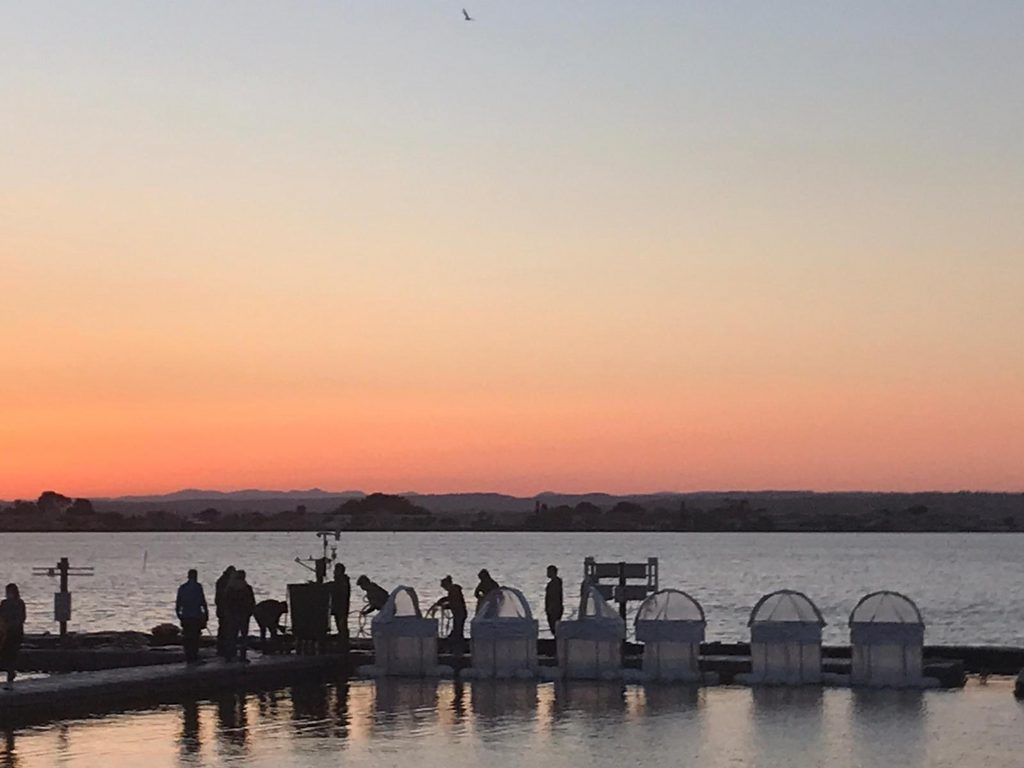AQUACOSM-plus opens funding opportunities for mesocosm experiments in 2022 under its second call for transnational access (TA).
As part of this call, applications are invited for experiments on the CNRS-MEDIMER infrastructure, France.
Topic: Effects of consecutive heatwaves on the resistance, resilience and recovery of marine plankton communities (heatwaves)
Project Leads: Francesca Vidussi and Behzad Mostajir
Project Duration: Planned for one month from April 25 to May 25, 2022
Deadline: Deadline to submit the online application to this experiment: 4th February 2022
Who can Apply: 20 scientists, students and trainees are strongly invited to participate.
Marine systems are facing an increase in the frequency of extreme events and in particular climate change scenarios preconize the increase of heatwaves in the future. An increase in Heat-waves can change planktonic diversity, interactions between different groups and key processes. According to the modelling previsions for the future increase in the frequency of heatwaves, an in situ mesocosm experiment will be carried out in the CNRS-MEDIMER infrastructure (Sète city in the south of France) situated at the PSS Med-Sea of the JERICO-S3 project.
In this experiment, triplicate in situ mesocosms will be heated at +3-5°C compared to natural surrounding waters for 5 days and triplicate other in situ mesocosms will act as the control following the natural surrounding water temperature. After this first period of the heatwave (HW1), all mesocosms in the experiment will undergo a period of 5 days without heating (Post HW1) following the natural water temperature. This experimental protocol will be repeated one more time with the corresponding periods denoted HW2 and Post HW2. In this way, the planktonic communities will be submitted to 2 consecutive periods of heatwaves and Post heatwaves and the results will be compared with those of Control mesocosms based on the daily sampling of chemical (nutrients, etc.), physical (light, temperature, etc.) and biological (plankton diversity, etc.) parameters, continuous high-frequency sensor measurements (temperature, conductivity, underwater light, dissolved oxygen and fluorescence of chlorophyll a), as well as the key ecological processes like Gross Primary Production, Respiration, Net Community Production, Growth and Loss of phytoplankton. Finally, based on the results the resistance, resilience and recovery of the planktonic communities will be estimated.
We invite all colleagues with an interest in investigating the plankton communities or processes in particularly those topics that the local team does not study like zooplankton, plankton parasites, virioplankton or preferential nutrient assimilation by different groups of phytoplankton or bacteria, biogeochemical cycles, detrital particles including Transparent Exopolymer Particles (TEP) and several other topics. It is also an occasion to test new methods to study the plankton food web components or functioning like deployment of underwater camera or cytometry to study large and small plankton, or other underwater instruments like in situ Fast repetition fluorometer to study photosynthesis, etc. Graduate students at different levels (Master, Ph.D., etc.) are very welcome for training and participating in this experiment, all trainees will be supervised by the local team. International scientists and students are invited to contact the local scientists (francesca.vidussi@cnrs.fr and behzad.mostajir@umontpellier.fr) for propositions to participate in this experiment.

